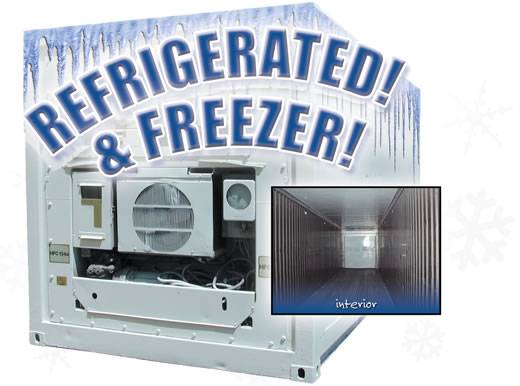Table of Contents
Introduction
Reefer containers, short for refrigerated containers, are critical components of the cold chain industry. Designed to maintain a controlled temperature environment, these refrigerated shipping containers ensure that perishable goods remain fresh during transport.

What Are Reefer Containers?
Reefer containers are specialized shipping containers equipped with refrigeration units to regulate temperature. Unlike standard shipping containers, they maintain a stable environment for goods sensitive to temperature changes, typically ranging from -30°C to +30°C (-22°F to +86°F).
These reefer shipping container come in various sizes, such as 20-foot and 40-foot options, making them adaptable for diverse cargo needs. They are widely used for transporting food products, pharmaceuticals, and chemicals requiring strict temperature controls.
Applications of Reefer Containers

Reefer shipping containers are essential in various industries, including food and beverage transport, pharmaceutical and medical supplies, and industrial chemicals. They ensure the quality, taste, and safety of items during transit, comply with stringent regulations for temperature-sensitive drugs, vaccines, and laboratory samples, and prevent temperature-induced degradation or hazards in controlled environments for certain chemicals.
Reefer containers are also commonly utilized for transporting fresh produce, seafood, and dairy products to maintain their freshness and extend their shelf life. Additionally, these containers are equipped with advanced technology, such as temperature monitoring systems and ventilation controls, to ensure optimal conditions throughout the journey.
Benefits of Reefer Containers
Reefer containers offer precise temperature control, global connectivity, energy efficiency, and enhanced cargo safety. They are equipped with advanced refrigeration systems, allowing for precise temperature settings for specific storage needs. They are compatible with major transport methods, reducing operational costs and environmental impact. Their robust construction ensures reliable delivery of high-quality products.
Refrigerated shipping containers also provide real-time monitoring and tracking capabilities, allowing for better management of the cargo and ensuring timely delivery. Additionally, their versatility makes them suitable for transporting a wide range of perishable goods, from food products to pharmaceuticals.
Conclusion
Reefer containers are essential for industries that rely on cold storage solutions. As technology advances, these containers continue to evolve, offering greater efficiency and reliability to meet the growing demands of global trade. Whether for preserving fresh produce or ensuring pharmaceutical integrity, reefer containers provide the perfect solution for temperature-sensitive cargo.
